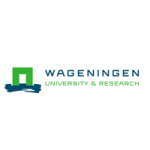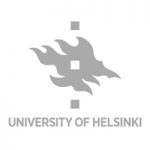项目介绍
Scientific computation is among the fastest-growing multidisciplinary research area and it serves as a bridge between the traditional domains of theoretical and experimental sciences. Computation research covers many areas in science and engineering. The multidisciplinary nature of computational science and its wide-ranging scope means that its training and research can best be integrated into different disciplines to equip students with a solid foundation of the knowledge in focused areas. This concentration is intended for research postgraduate students who are interested in pursuing research in computation related research. Students can enroll in a particular discipline for research with a special focus in Scientific Computation.
The Scientific Computation Concentration is open to research postgraduates in the School of Science and the School of Engineering.
The Scientific Computation Concentration is designed to equip students with a solid foundation of the knowledge in different disciplines with following research foci.
Research Foci
Computational Biology and Bioinformatics
- Computational structural biology
- Bioinformatics
- Computational neuroscience models of multi-sensory integration and motion sickness
Computational Fluid Dynamics and Soft-Matter Simulation
- Multi-scale phenomena at fluid-solid interfaces
- Kinetic methods for continuum and near-continuum flows
- Multi-scale coupled circulation-ecosystem simulation in the ocean
- Supersonic convection and radiation-convection transition in astrophysics
- Large-scale flow structures and their effects in turbulent thermal convection
- Phase transitions in colloids
Computational Material Science
- Discovery and design of wave-functional meta-materials and photonic crystals
- Catalyst design
- First principles and phenomenological modeling of nanomaterial
- Spin dynamics in nanostructures
- Dislocation dynamics
Efficient High-performance Computing Systems
- Energy and cost efficient computing systems
- Merged scale-up and scale-out computing systems for HPCs and data centers
Environmental and Atmospheric Modeling
- Real-time air quality analysis
- Development of an operational air quality prediction system
- Numerical investigation of air pollutant inception: the role of humidity
- Collisions and diffusion of water clusters on hydrophilic and hydrophobic surfaces for chip/device cooling
- Multiscale simulation of thermal conductivity of nanomaterials for thermal management
High Performance Computing and Data Analysis
- High-performance deep learning
- Big data analytics
Information Statistical Physics and Big Data Analysis on Networks
- Stability, reliability and robustness of power grids
- Social network: dynamics of opinion formation and community detection
- Random walk and games
- Analysis of big data using evolution computation and quantum genetic algorithm
- Agent dynamics and artificial life in econophysics
To qualify for admission, applicants must meet all of the following requirements. Admission is selective and meeting these minimum requirements does not guarantee admission.1. General Admission Requirements of the University
- Applicants seeking admission to a master’s degree program should have obtained a bachelor’s degree from a recognized institution, or an approved equivalent qualification;
- Applicants seeking admission to a doctoral degree program should have obtained a bachelor’s degree with a proven record of outstanding performance from a recognized institution; or presented evidence of satisfactory work at the postgraduate level on a full-time basis for at least one year, or on a part-time basis for at least two years.
2. English Language Admission Requirements
Applicants have to fulfill English Language requirements with one of the following proficiency attainments:
- TOEFL-iBT: 80*
- TOEFL-pBT: 550
- TOEFL-Revised paper-delivered test: 60 (total scores for Reading, Listening and Writing sections)
- IELTS (Academic Module): Overall score: 6.5 and All sub-score: 5.5
* refers to the total score in one single attempt
Applicants are not required to present TOEFL or IELTS score if
- their first language is English, or
- they obtained the bachelor’s degree (or equivalent) from an institution where the medium of instruction was English.
联系方式
电话: +852 2358 8888相关项目推荐
KD博士实时收录全球顶尖院校的博士项目,总有一个项目等着你!






